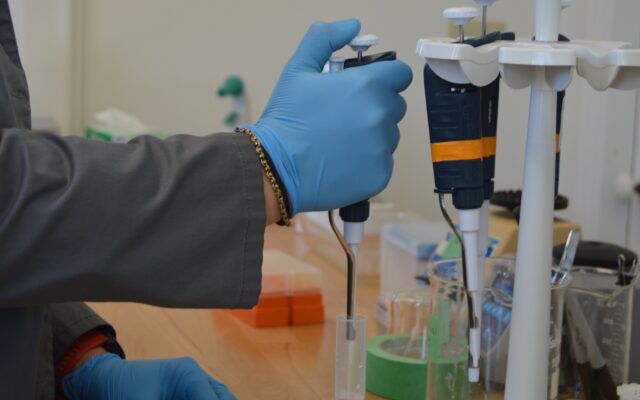
Maine’s PFAS law should be amended to target dangerous products without harming our economy
By Joe Baldacci and Chris Kilgour
One of the biggest policy topics in Maine recently has been PFAS. Also known as “forever chemicals,” PFAS are manmade synthetic per- and polyfluoroalkyl substances and compounds. They are everywhere and exist in millions of products nationwide.
We must take concerns related to PFAS seriously. It’s essential that we identify ways to mitigate their health impacts and presence in our environment. How we address concerns related to PFAS will have a huge impact in our state — on our economy, the health of our people and our climate and energy goals.
The Maine Legislature passed a law two years ago to do this. In retrospect, the proposal probably could have taken a more targeted approach. The law requires every business in Maine to report the presence of intentionally added PFAS in any product it makes or sells. This includes all the component parts of any item, a nearly impossible task for small businesses in Maine given the complexities of the modern-day international supply chain. If a business cannot report that information, it cannot sell its products in Maine. The law also bans the use of intentionally added PFAS in 2030.
PFAS exist in cars and cellphones, in health products like prescription medicines, in life-saving medical devices such as heart stents, and in medical and veterinary diagnostic tests. They are in solar panels, heat pumps, electric vehicles and many other products key to helping Maine build a clean energy future and meet our climate goals. PFAS are used in thousands of durable parts so that they will not end up in our lands or water. These include parts used by boat builders, airplane manufacturers and other manufacturers.
Because scientific standards haven’t yet kept pace with the law’s broad mandate, certain practical common-sense amendments are likely needed.
C&L Aviation in Bangor is a good example. C&L employs 200 people and repairs airplanes from all over the world. C&L buys and sells more than 400,000 different component parts and is bound by federal regulations dictating what parts may be used and how.
Tracking down the information required by the current law for 400,000 component parts would be extraordinarily difficult, and the cost to do so would be staggering. Even if the information were available and C&L could afford to assemble it, the company has no legal authority to substitute one airplane part for another. The reporting requirement and the ban on products containing intentionally added PFAS could make it impossible for C&L to operate in Maine.
A ban on all PFAS could have an equally dangerous impact on Maine consumers. It could jeopardize access to life-saving medical procedures, medical and veterinary testing, and prescription medicines. It could hinder progress on our climate action plan and transition to clean energy. It could threaten future job creation by Maine businesses, and result in some of them — like C&L Aviation — moving elsewhere.
Earlier this year, Joe successfully worked with the business community and legislative colleagues to pass a delay of reporting requirements of the PFAS in products law, legislation that may have protected thousands of jobs in Maine. The delay will hopefully give the governor and the Legislature the chance to work together to craft an amendment that protects our people and our economy.
The amended law should address PFAS in products that have the most direct contact with human health, while also protecting our ability to access essential products and achieve our renewable energy and climate goals. A blanket ban on PFAS at this time is not possible, even with the best technology available.
Our path forward should recognize that not all PFAS are the same or pose the same risk. Many PFAS compounds are integral to essential and life-sustaining products we use every day. They cannot be regulated using a “one size fits all” approach. And our current scientific and testing tools are limited.
Everyone in Maine has a stake in the implementation of the PFAS in products law, because it will affect our livelihoods, health and environment. We can succeed in exposing and eliminating unnecessary PFAS, and we should take a thoughtful, science-based approach when doing so.
Baldacci is the state senator for District 9 and a former Bangor mayor. Kilgour is the CEO of C&L Aviation, located on the former Dow Air Force Base in Bangor.